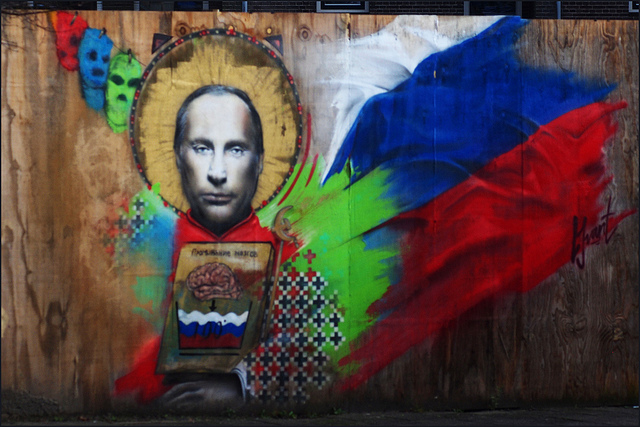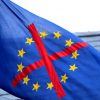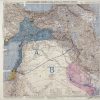
The situation in the Ukraine is far from stable but may have started to be contained, although it could easily deteriorate, as shown by the enduring violence and the alleged delivery of Russian tanks to the eastern separatists, while there is a persisting risk of either side losing control of the situation. However, Putin has accepted the Ukraine’s elected President, Petro Poroshenko, who gained a clear overall majority throughout the country except in the parts where voting was impossible. Putin is trying to avoid further –and really damaging– Western sanctions, but there is no guarantee that he will succeed. He does not seem to be interested in invading the eastern Ukraine –where a significant part of the country’s industry is concentrated, including its military facilities– but in maintaining the pressure exerted by the militias while still using gas supplies as a means of coercion, although the latter may bring him up against Europe. His greatest achievement has been that Russia’s annexation of the Crimea is hardly worthy of mention anymore. It has been taken for granted. Has Putin won? In the short term, so it seems. In the long run it is much more uncertain because Western confidence in the Russian President, and in Russia, has evaporated.
Putin has won, for a start, in Russia, where his popularity has grown enormously despite the economy’s parlous state. He has given the Russians exactly what they wanted, although they were ignorant of what they wanted, and, unlike the Americans with Obama, his fellow citizens are overwhelmingly thankful to him for this injection of self esteem. It remains to be seen whether in the long run his regime will become strengthened or weakened.
For the time being, Europe, left to herself, has become divided on account of weaknesses and conflicting national interests. At the recent meeting of the ECFR (European Council on Foreign Relations) in Rome the Italian Foreign Minister, Federica Mogherini, advocated rebuilding a strategic partnership between the EU and Russia, a proposal that was not well received by certain participants from the Union’s north and east. But the issue will come round again if the situation stabilises and becomes normalised. As for the Ukraine, the EU is sure to sign a trade agreement, although not yet the ill-fated Eastern Partnership. And the prospects of the Ukraine becoming, or again becoming, a buffer state are now stronger, despite the Ukrainians’ desire of a stronger prospect of joining the EU, even if in the distant future.
It remains to be seen – the issue will be addressed next week in the European Council– if the EU, without or against Russia, will finally launch an urgently needed common energy policy that, to begin with, will drastically reduce Europe’s dependence on Russian gas and oil. In the medium and long terms it would imply a profound geo-economic change, to Russia’s detriment. Meanwhile, admirers of Putin have emerged, in France for instance, and not only in the ranks in the National Front, in a country that views its own political leaders as particularly poor.
Amongst the losses for Putin and Russia are the consequences of violating a number of international laws and agreements as a result of the annexation of the Crimea. Putin has broken the rules of the post Cold War in Europe which, in the best case, has led to the mistrust of the US and Europe –with which it is in a state of interdependence–. But above all, Putin has awakened a NATO that was in an existential crisis after having waged its most distant and longest war in Afghanistan. The Atlantic Alliance is no longer what it was, but it is bouncing back, and that goes against Russia. Although, significantly, the only power to symbolically send troops to its Eastern European allies’ territory is the US.
On the other hand, the annexation of the Crimea and the secessionist uprisings in the East have definitively alienated the Ukraine from Putin’s project of a Eurasian Union, which without Kiev is a merely a lame duck.
Some believe that we are moving towards a new Cold War –an old name for a possible new reality– in which Russia will become engaged from a position of weakness, as it is no longer the Soviet Union and has huge internal problems, starting with its declining demographics. A return to spheres of influence is not to the liking of a competitive world. But Putin is not alone. More than Russian isolation, the crisis has given rise to the world’s de-westernisation. The rest have not followed the West in its show-down with Putin. Asia has remained on the sidelines, as it needs Russian energy and does not approve of sanctions that might lead to what the ECFR calls the ‘alliance of the threatened’ by other penalties (while the EU embargo on selling arms to China remains in force). For Latin America the whole issue is just too distant. Only the US is pressuring Russia, while Europe is unenthusiastic, thereby undermining the transatlantic spirit. But if Washington begins to exert serious pressure, all of Europe, including those who are most reluctant about sanctions, will follow, even if reluctantly.


